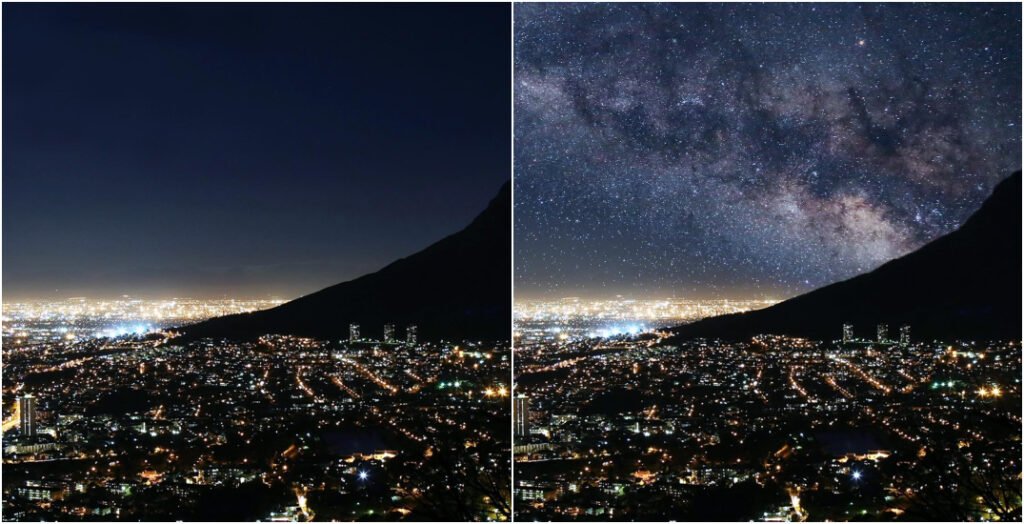If you’re bummed about not being able to see stars at night, you’re not the only one.
Noctalgia is a word astronomers made up to describe “sky grief,” the feeling of missing out on seeing stars and constellations at night, especially for people living in cities. It’s like a deep sense of loss or longing for the beauty of the night sky.
Even though you can still see stars in the countryside and places with fewer people, those who live in or near cities have a tough time catching a glimpse of even the brightest stars in the sky. Scientists said in a separate study last June that the Earth’s sky has been getting brighter by around 9.6 percent each year since 2011.
The people who came up with the term say that too much light, especially with LED lights these days, affects a bunch of things in our lives and society. Both humans and animals have embedded circadian rhythms, which are like internal clocks that follow the Earth’s 24-hour cycle. Research has found that light pollution can mess up these natural rhythms.
Light pollution messes up these patterns that animals need light for, so some animals become easy targets for predators or predators can’t hunt at all. In other places, it also messes up their ability to have babies and migrate.
Aside from the physical effects, astronomers also claim that this phenomenon is a bummer for our culture. Meaning, humans have always based their lives around the natural light cycles and the sky has been a big deal for ages, with all the mythology and religion built around it. Without the night sky as a visible anchor, it’s certainly worth asking: who are we?
In other words, Noctalgia is not just about the loss of the physical environment. It is also about the loss of the cultural and spiritual connections that we have to that environment. These connections are essential to our sense of identity and well-being.
Reference- Journal Science, ArXiv Submission, Space.com, National Library Of Medicine
